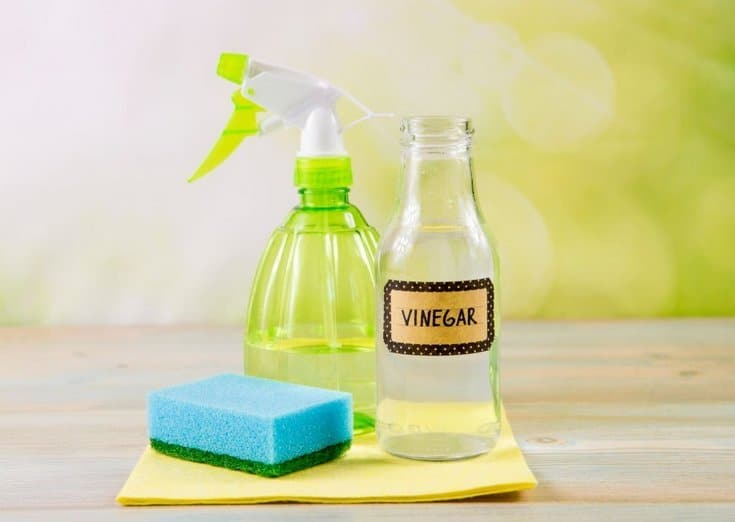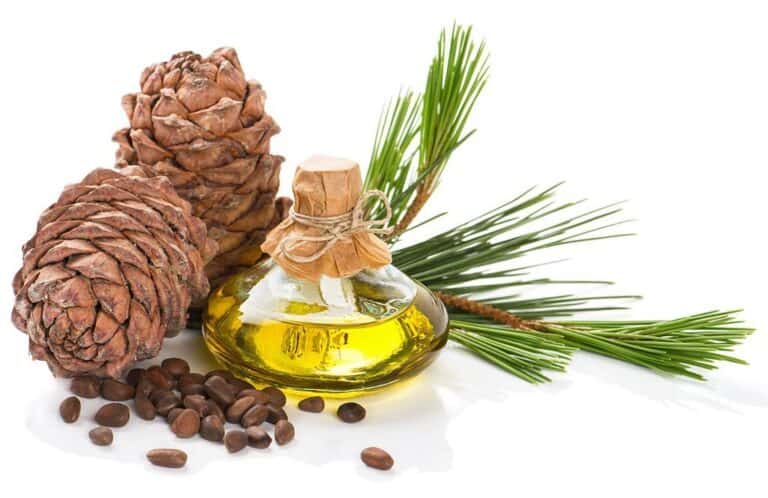Does Boiling Vinegar and Water Remove Smell and Clean the Air?

Vinegar and water are often used to clean surfaces and remove odors. However, does boiling vinegar and water actually clean the air?
People believe that boiling water and vinegar remove bad smells and clean the air. Nevertheless, this is not always the case.
According to some experts, vinegar and water can help remove pollutants from the air, but they are not a complete solution. Boiling water and vinegar can actually do more harm than good.
Air Cleaners’ Hidden Danger
Are you using an air cleaner to improve the quality of the air in your home? If so, you may be putting your health at risk. Air cleaners can actually cause more problems than they solve by emitting harmful particles and chemicals.
Air cleaners work by trapping pollutants in the filter. However, these filters are not always effective at removing all of the contaminants from the air. In fact, some of these pollutants can actually be released back into the room when the filter is replaced.
The most common type of air cleaner is a mechanical filter. These filters use a fan to draw in polluted air, which is then passed through a series of filters. The filters remove large particles such as dust, pollen, and pet hair. However, they do not remove small particles like smoke and bacteria.
Another type of air cleaner is an electronic filter. It is important to be aware of the dangers of electronic filter air cleaners before purchasing one. While they may seem like a good idea, these devices can actually do more harm than good.
The problem with electronic air cleaners is that they create ozone. This gas can be harmful to both humans and animals, and can even cause lung damage. Additionally, it’s been shown that ozone can actually make allergies and asthma worse.
So before you buy an electronic air cleaner, be sure to do your research and make sure that it won’t endanger your health. There are many other types of air cleaners available that don’t create ozone, so there’s no need to take the risk.
Can You Boil Vinegar? It is Safe?
Well, yes, you can boil vinegar. You should do it with precautions, though, because it is not always safe. The common household use of vinegar contains about 4–6% by weight of Acetic Acid. This vinegar will typically boil at 100.6 degrees Celsius, or about 213 degrees F.
If the water contains contaminants, the boiling point will be greater than this. If the vinegar’s acetic acid concentration is greater than 6%, the same applies. Acetic acid also evaporates when vinegar is cooked, resulting in a reduced time for the vinegar to be ready after being boiled. When vinegar is used to deglaze a hot skillet, this behavior can be observed.
What Is the Purpose of Boiling Vinegar and Water?
Boiling vinegar will help to make it more potent and will help to get rid of any impurities that might be in it.
Boiling vinegar is also a great way to sanitize surfaces. If you’re looking to clean something with vinegar, boiling will help kill bacteria and sanitize the surface.
Some people are boiling vinegar to make vinegar sauce. If you want to make a vinegar sauce, bring the vinegar to a simmer and add your seasonings.
Does Boiling Vinegar Remove the Smell?

Boiling vinegar is a great way to remove the smell from just about anything. If you have a smelly piece of clothing, pour some vinegar into a pot and bring it to a boil. Remove the clothing from the pot and let it air dry. The vinegar will remove the smell and your clothing will be fresh and clean.
If you have a smelly kitchen, boiling vinegar can help get rid of the smell. Pour some vinegar into a pot and bring it to a boil. Turn off the heat and let the pot sit for a few hours. The vinegar will absorb the bad smells and your kitchen will be smelling fresh again.
When you are cooking and something smells bad, the smell can stay in your kitchen for a while. If you have boiled vinegar and let it cool, you can spray it in the air to get rid of the smell. The vinegar will neutralize the bad odor.
Can Boiling Vinegar Clean the Air?
The answer is yes, it can! Boiling vinegar can help to remove bacteria, mold, and other allergens from the air. It also helps to deodorize the air and get rid of any unpleasant odors.
Boiling vinegar is a natural way to clean the air, and it is safe for both people and pets. And it’s an affordable solution too!
Just be sure to open a window or door to allow fresh air into the room while you’re boiling the vinegar. And never mix vinegar with bleach—the fumes could be dangerous if inhaled for long periods of time.
Natural Air Odor Eliminator
There is a growing number of people who are looking for natural air odor eliminators. This is because many commercial air fresheners and deodorizers contain harmful chemicals. These products can also be expensive, so people are looking for alternatives.
One option is to use an essential oil diffuser. This can be a great way to get rid of bad smells and add some aromatherapy to your home. There are many types of essential oils that have different odors. You can choose the one that best suits your needs.
Another option is to use a natural air purifier. These devices work by removing contaminants from the air. They come in a variety of shapes and sizes, so you can find one that will fit your needs.
You can also use baking soda or activated charcoal to help get rid of bad odors. Baking soda is a great deodorizer, and activated charcoal can help absorb unpleasant odors.
Is Breathing Vinegar Harmful and Making You Sick?
Most people know that vinegar is a sour, acidic liquid that is used in cooking and cleaning. But the dirty truth is that breathing deeply to enjoy that feeling can be harmful.
Inhaling vinegar fumes can cause problems with your respiratory system, including coughing, wheezing, and chest pain. It can also irritate your nose and throat.
However, when you breathe it in, the vinegar enters your lungs and is absorbed into your bloodstream. This can be an issue because the lungs are not meant to absorb liquids. When the vinegar enters your bloodstream, it can cause all sorts of problems, such as dehydration, electrolyte imbalances, and even heart attacks. In fact, there have been several cases of people dying after inhaling vinegar fumes.
What Happens if You Drink White Vinegar?
While it may not be the most appealing beverage choice, white vinegar is a type of vinegar that is made from distilled grain alcohol. It is often used in cooking, as a salad dressing, and as a cleaning agent.
White vinegar is also sometimes consumed as a health tonic. Some people believe that drinking white vinegar can help with weight loss, detoxification, and blood sugar control. However, there is no scientific evidence to support these claims.
Overconsuming white vinegar can also have harmful effects. It can cause burns in the mouth and throat, damage the teeth, and lead to nausea and vomiting.
How Can Vinegar Be Used as a Cleaning Agent?
There are many types of vinegar, but white distilled vinegar is the most common. This type of vinegar is made from grain alcohol and water. White distilled vinegar is a 5% acid solution and has a pH of 2.4. It is a colorless liquid that has a strong odor.
Vinegar can be used to clean many things in your home. It is a great cleaner for windows, floors, and countertops. Vinegar can also be used to clean appliances, including the refrigerator and stovetop. Vinegar can be used to remove buildup on hairbrushes, combs, and toothbrushes. It can also be used to cleanse the skin and remove warts.
Vinegar is an inexpensive cleaner that is safe for people and pets. It is non-toxic and biodegradable.
There are two components in vinegar: acid and water. For cleaning purposes, it can be used with oil, alcohol, or even gasoline. Water contains acetic acid in a dissociated state. Hydrogen and acetate ions are the two dissolved components of acetic acid.
In order to maintain its stability, this hydrogen is extremely receptive and will try to bond with any other molecule. It’s because of this hydrogen that alkali stains like urine, soap, or limestone have effective cleaning capabilities.
Final Thoughts
In conclusion, boiling vinegar and water is an effective way to remove odors and clean the air. The boiling process creates a vapor that eliminates odors and airborne particles. Additionally, vinegar is a natural disinfectant, which helps to kill bacteria and viruses.






